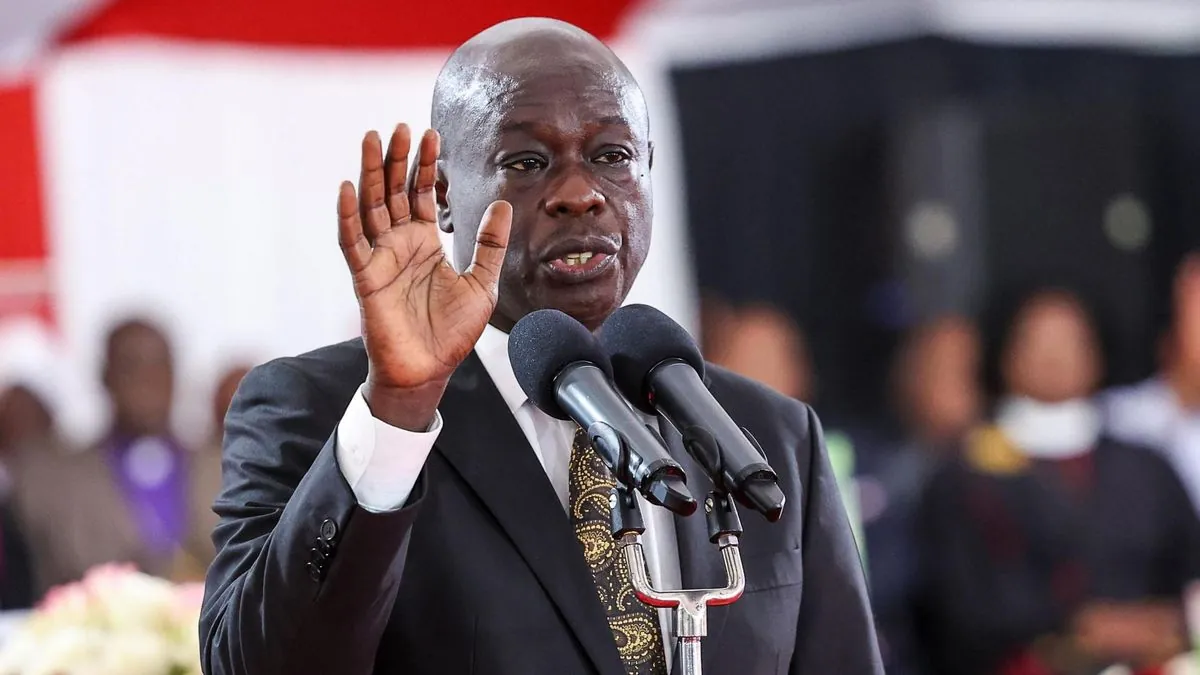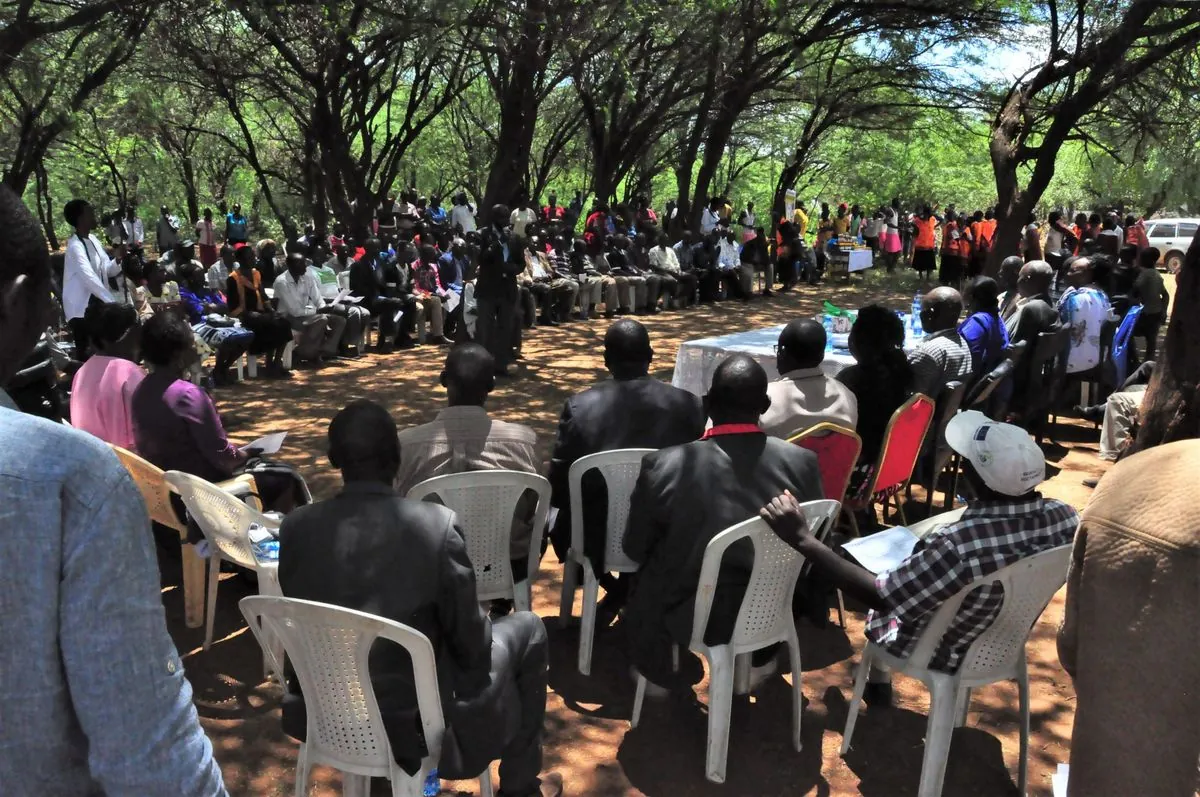Kenya's Deputy President Faces Impeachment Amid Public Clashes
Kenya's Deputy President Rigathi Gachagua faces impeachment motion, sparking nationwide public forums and clashes. Accusations include corruption and supporting anti-government protests, as the country grapples with political tensions.

In a significant political development, Rigathi Gachagua, Kenya's Deputy President, is confronting an impeachment motion that has ignited public discourse and led to confrontations across the nation. The motion, introduced in parliament by the ruling alliance on October 1, 2024, has prompted a series of public forums to discuss the impeachment, revealing deep divisions within Kenyan society.
The impeachment process, a crucial aspect of Kenya's democratic system established by the 2010 Constitution, requires a two-thirds majority vote in both houses of parliament. This constitutional framework, which created the position of Deputy President, aims to ensure accountability in the country's governance.
Public forums held on October 4, 2024, saw supporters and opponents of Gachagua clash in various locations. At the Bomas of Kenya, a cultural center in Nairobi, violence erupted as chairs were thrown in the auditorium. Similar incidents occurred in Nyeri and Nyandarua counties, highlighting the intense emotions surrounding the impeachment debate.
The accusations against Gachagua are multifaceted, including allegations of supporting anti-government protests in June 2024 and involvement in corruption. These charges come at a time when Kenya ranks 124th out of 180 countries in the 2023 Corruption Perceptions Index, underscoring the ongoing challenges the nation faces in combating corruption.
Gachagua vehemently denies these allegations and has pledged to contest the impeachment motion. The high court has set October 9, 2024, as the date for the hearing, declining to halt the public participation process.
Kenya's political landscape has long been characterized by shifting alliances and coalitions. The current situation echoes past political tensions, including the post-election violence of 2007-2008, which remains a stark reminder of the potential consequences of political instability.
President William Ruto has notably refrained from commenting on his deputy's impeachment, possibly mindful of his own experiences as a deputy president under the previous administration. This silence reflects the complex dynamics within Kenya's presidential representative democratic system.
As Kenya navigates this political challenge, it continues to play a significant role in East Africa, boasting the region's largest economy. The country, with its population of approximately 55 million, has made strides in various sectors, including technology, earning it the moniker "Silicon Savannah."
The impeachment process unfolds against the backdrop of Kenya's efforts to achieve the United Nations Sustainable Development Goals and its membership in regional bodies such as the East African Community and the African Union. These international commitments underscore the broader implications of the country's political stability.

As the Senate prepares to hear the impeachment motion on October 8, 2024, the nation watches closely. The outcome of this process will not only impact Gachagua's political future but also shape Kenya's political landscape in the coming years.
"If the deputy president is guilty, then his boss the president is equally guilty."
This unfolding political drama serves as a testament to Kenya's evolving democracy, showcasing both the challenges and the resilience of its political institutions. As the country continues to grapple with issues of corruption, ethnic diversity, and economic development, the resolution of this impeachment process will be a significant indicator of Kenya's democratic maturity and its ability to navigate complex political waters.


































